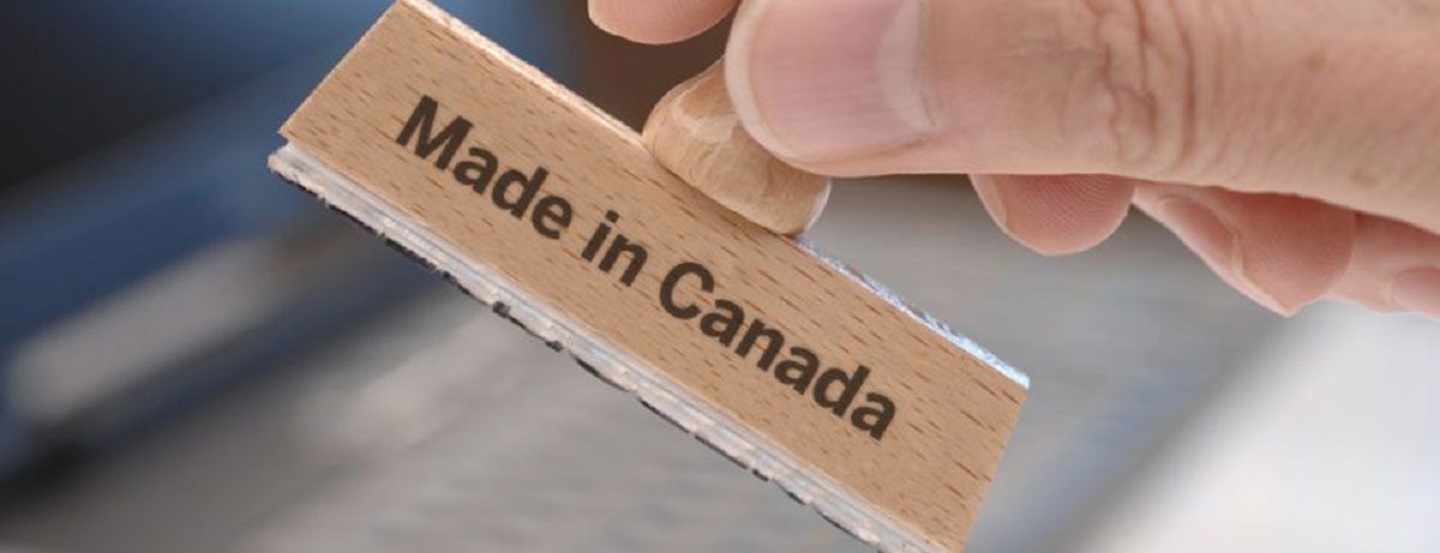In 2009, Buy American legislation cost Oakville-based IPEX Inc., a global manufacturer of thermoplastic pipes, hundreds of jobs and a full year of financial headaches. Today, despite its past experience and current uncertainty about what U.S. protectionism will mean for Canadian companies, IPEX is taking a positive stand on business opportunities south of the border.
“We’ve increased our targets in the market,” says Veso Sobot, IPEX Inc.’s Director of Corporate Affairs. “And if Buy American does make resurgence, we’re prepared. This isn’t like 2009 when we were caught off guard.”
Sobot has a unique perspective. He led the business community charge to fight the Buy American restrictions introduced in 2009 as part of the $787-billion American Recovery and Reinvestment Act (ARRA). The Obama administration introduced the stimulus bill to jumpstart the American economy. For many Canadian companies, the spending boost was supposed to unlock doors of opportunity south of the border. Instead, it virtually locked them out overnight.
Buy America and Buy American legislation dictate the use of US domestic content requirements in certain U.S. federally funded infrastructure projects.
IPEX experienced Buy American first-hand when an inspector noted the ‘Made in Canada’ stamp on its product used in a retrofit of a federally-funded project in Southern California’s Camp Pendleton. The inspector ordered IPEX’s pipes removed and replaced with an American product.
“It was more of a triage approach that companies had to take back in 2009. Now it’s more strategic and both sides have mobilized intelligently,” says Sobot. “I’m confident that Canada and the U.S. will work out a deal in the best interests of both parties.”
I’m confident that Canada and the U.S. will work out a deal in the best interests of both parties.
This doesn’t mean there isn’t risk, Sobot adds. Ironically, under NAFTA provisions, IPEX Inc. was permitted to sell the pipes that were removed in 2009. “But the perception was that we were not in compliance and that’s’ what caused a lot of grief and cost.”
In his inaugural address to Congress, President Trump focused on the themes of “Buy American” and “Hire American” when referencing a proposed $1 trillion infrastructure bill.
The impact for Canadian companies is not a matter of if, but when, says Jayson Myers, a senior economist and trade expert, who led lobbying efforts against Buy American in 2009.
“This time it’s different,” says Myers. “In 2009, it (Buy American) wasn’t core to Obama’s administration, but now it’s clearly a priority of the Trump administration.”
A leading Canadian think tank agrees.
“Canada is almost certain to face Buy-American provisions on U.S. infrastructure spending,” Scott Sinclair, a Director of the Canadian Centre for Policy Alternatives told Maclean’s Magazine in January.
On the positive side was the White House’s announcement that TransCanada’s Keystone Pipeline will be exempt from President Trump’s executive order requiring infrastructure projects to be built with American steel.
“The Keystone XL Pipeline is currently in the process of being constructed, so it does not count as a new, retrofitted, repaired or expanded pipeline,” said a White House spokeswoman at the time of the announcement.
Birgit Matthiesen, Director, Canada-U.S. Cross Border Business Affairs at Washington D.C. law firm Arent Fox, says Canadian companies need to do their homework to navigate around this complex issue.
“First step is to know what Buy American is and what Buy American is not,” she says.
Currently, privately-funded projects, for example, are exempt from these federal measures so the approach should be to ‘follow the money.’
Companies need to make sure who is buying their product and for which reason. If their products are going to be used for certain federally-funded infrastructure projects, then find out how the domestic content will be calculated.
“Companies need to make sure who is buying their product and for which reason. If their products are going to be used for certain federally-funded infrastructure projects, then find out how the domestic content will be calculated. Also find out whether there are any Buy American waiver or exemption provisions because there usually are.” She furthered, “Even one dollar from a US federal agency could trigger a domestic content requirement. Most of these rules focus on the use of American iron and steel but others add the requirement on manufactured goods made of iron and steel. And to further complicate matters, each federal agency responsible for implementing these rules have different ways to calculate ‘manufactured’ or ‘end product’ or ‘domestic’. This alphabet soup of agencies and rules are not for the faint of heart.”
Birgit also suggested that new Buy American requirements can be anticipated in the months ahead, both at the federal as well as State level.
The result is that this type of deep understanding, once developed, will help companies take a proactive approach, sophisticated marketing plan and a legal compliance strategy.
“An informed compliance strategy means that your company will be able to say with confidence that their product meets the project’s compliance requirements,” Matthiesen says. “Companies in other countries are facing the same hurdles and will need to conduct the same internal analysis and outreach to their customers. It’s worth the extra effort and companies need to just roll up their sleeves and get into the weeds. This is where we can help.”
Until the overall impact is better understood, Myer’s is advising Canadian companies to consider a diversification strategy.
“This is a potential wake-up call for Canadian companies to supplement their sales in the U.S. by looking at other markets. Adopting a diversification strategy, in my opinion, is no longer just a nice to do, but a must do,” he says.
Myer says companies have three options:
- Stay the course and maintain the status quo.
- Consider establishing a presence in the market such as an office, manufacturing facility or partnering or even buying a local business.
- Create a diversification strategy. For example, the ratification of CETA will open up new opportunities in Europe.






